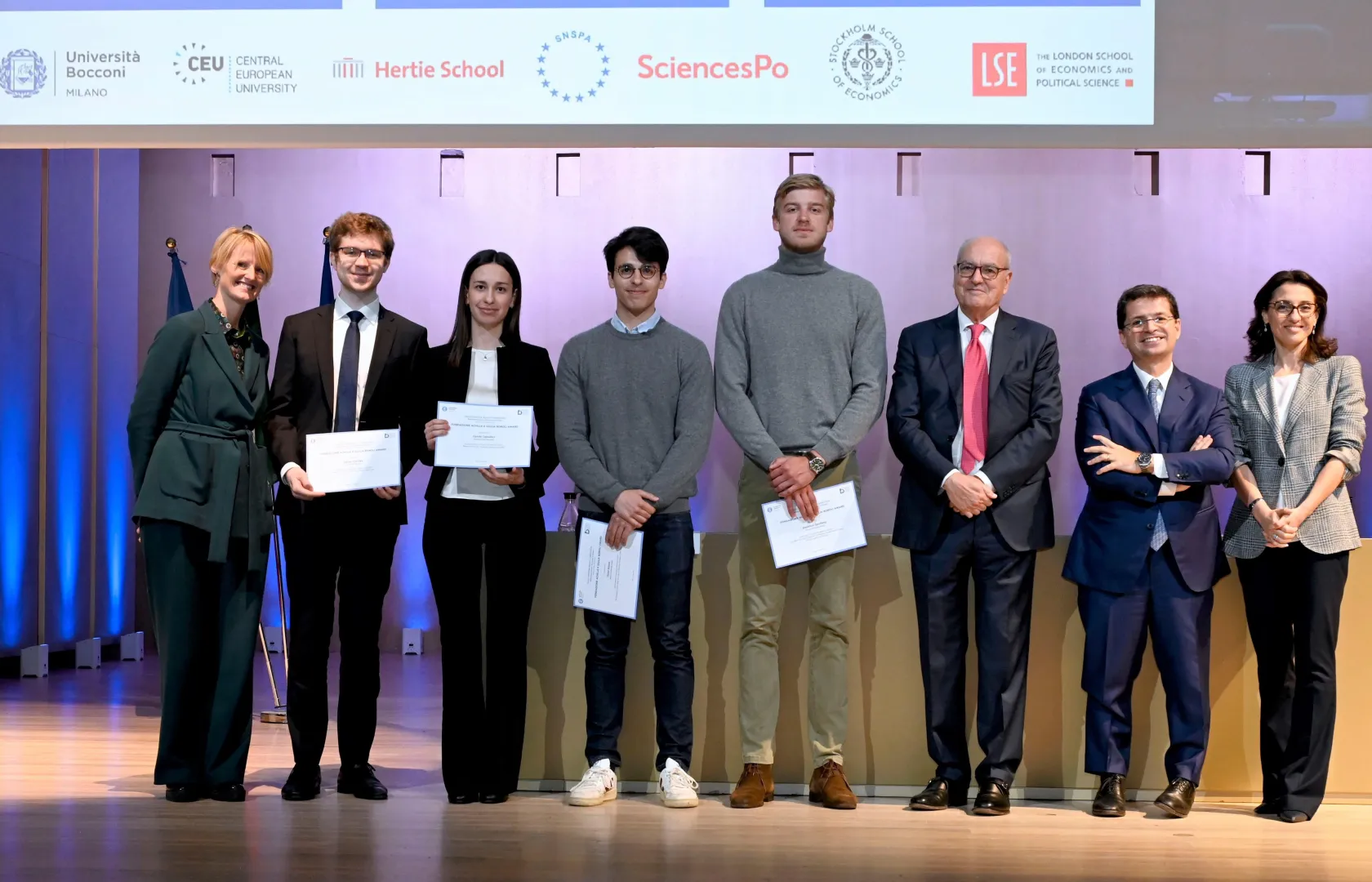
CIVICA students take on the EU's challenges
A lively debate and exchange among students and faculty across the CIVICA alliance on the major challenges facing Europe during the second edition of the Multicampus course 'The Future of Europe' has led to three winning students' projects which developed concrete policy proposals.
The course is one of the flagship initiatives of CIVICA, the alliance of ten European universities leaders in the social sciences of which Bocconi is a founding member, and is designed and taught jointly by a team of professors from the different alliance members. It was delivered simultaneously across CIVICA campuses in the Fall 2022 semester, with live online lectures integrated with local activities. Around 123 master's students participated, representing 7 CIVICA partners, and examined EU policy-making in four critical areas: globalization, democratization, the environment and digital transformation.
The final evaluation of the course was based on a group capstone project developed by 26 teams of four to six students from at least three campuses – giving students the opportunity to apply their knowledge to a real-life, practical challenge, guided by supervisors. Each project had to address and develop in detail a concrete policy challenge that the EU faces.
"Again in this second edition of the course, reading the students' policy proposals was refreshing and enlightening, given the originality and the depth of the analyses" says Carlo Altomonte, Professor of Economics of European Integration at Bocconi University and coordinator of the course. "We shortlisted 10 projects based on the evaluation received by the CIVICA supervisors, and ultimately awarded three prizes, in the areas of globalization, environment and democracy."
On May 2, the three best capstone projects were awarded a monetary prize funded by the Fondazione Achille and Giulia Boroli, which funds a Chair in European Studies at Bocconi University. The ceremony was held during the Bocconi-Boroli Lecture with guest speaker Irene Tinagli, Chair of the Economic & Monetary Affairs Committee at the EU Parliament, who discussed the challenges facing the EU.
"We focused on a role the ECB could play in tackling climate change – especially looking at the question of the large volume of fossil assets held by banks. Our final recommendation was to allow the ECB to act as a 'bad bank' by buying back these assets that are burdening the capital of European banks, also ensuring that this buyback causes a real transition in banks' investment strategy," says Vincent Jacamon, a Master's in International Energy student at Sciences Po and member of one of the winning teams. "With this experience we benefitted from insights of professors from across Europe and with the project we had a great exchange with students from
different backgrounds on a subject crucial for our generation: tackling climate change. The complementary perspectives of my group and the enriching discussions we had made me even more aware of the value of diversity within the European academic community."
"We analyzed how the European Political Community (EPC) can complement the EU enlargement policy and enable the deepening of the sectoral integration of Candidate Countries with the EU prior to accession. We also suggested some ways to transform the Revised Enlargement Approach into a more political and meritocratic process," says Carola Capodieci, MSc in International Management student at Bocconi University, in the winning team which dedicated itself to the topic of democracy. "The Multicampus course was really helpful in deepening my understanding of the current challenges of European integration. The stimulating discussions with professors and students with different cultural and academic backgrounds enriched the learning experience."
"We proposed the formation of a European Medical Information Agency that would be responsible for countering medical disinformation online by identifying and flagging inaccurate information on social media and compiling accurate information on a central website," says Frances Klatt, who studies European Governance at the Hertie School. "The Multicampus experience was a wonderful opportunity to get to know students at other universities across Europe and to use our different backgrounds to create a more well-rounded approach."